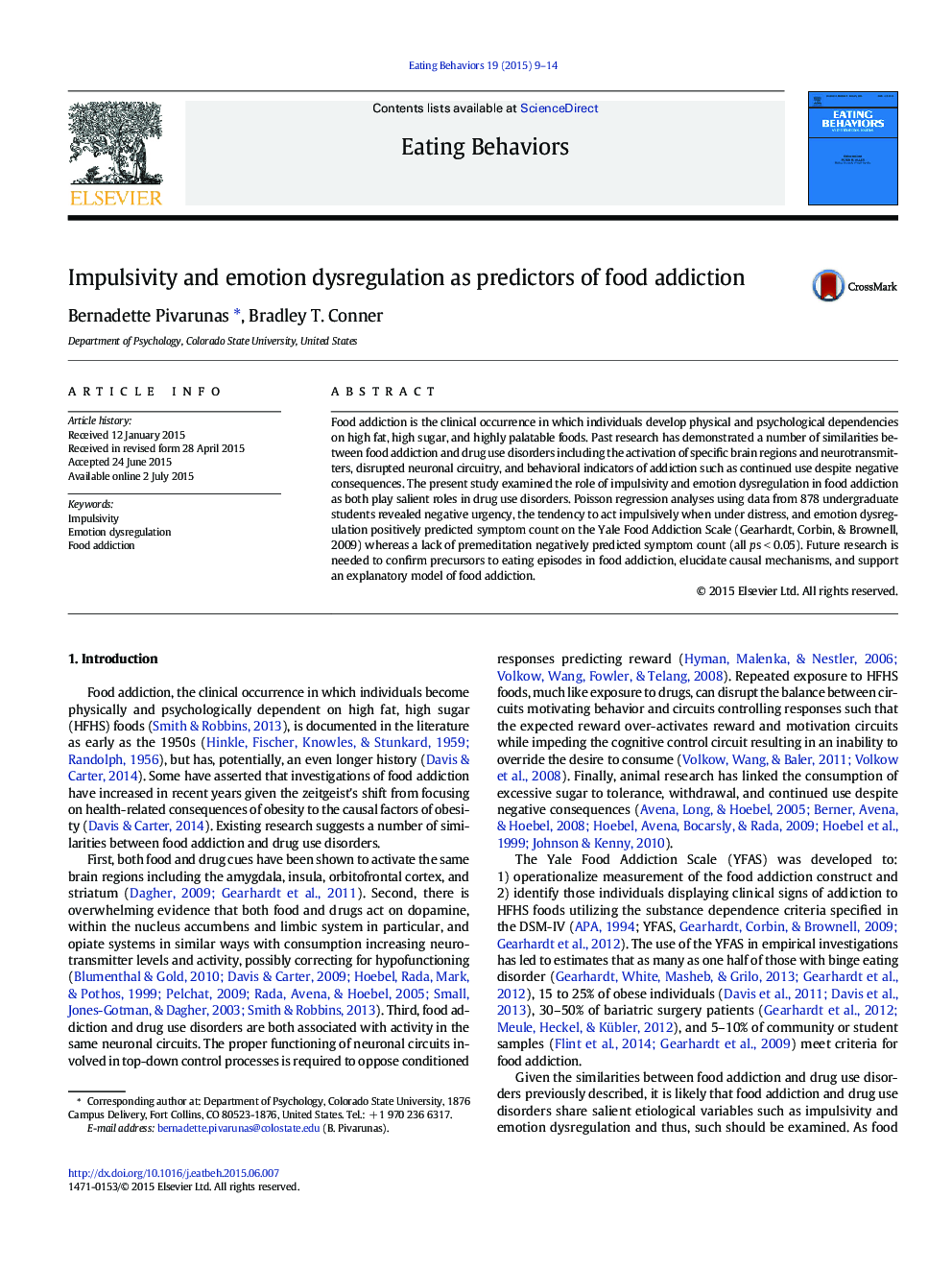| کد مقاله | کد نشریه | سال انتشار | مقاله انگلیسی | نسخه تمام متن |
|---|---|---|---|---|
| 906276 | 1472884 | 2015 | 6 صفحه PDF | دانلود رایگان |
• Impulsivity, emotion dysregulation, and food addiction were assessed.
• Approximately 5% of the sample met criteria for food addiction.
• Negative urgency and emotion dysregulation were positively associated with food addiction.
• Lack of premeditation was negatively associated with food addiction.
Food addiction is the clinical occurrence in which individuals develop physical and psychological dependencies on high fat, high sugar, and highly palatable foods. Past research has demonstrated a number of similarities between food addiction and drug use disorders including the activation of specific brain regions and neurotransmitters, disrupted neuronal circuitry, and behavioral indicators of addiction such as continued use despite negative consequences. The present study examined the role of impulsivity and emotion dysregulation in food addiction as both play salient roles in drug use disorders. Poisson regression analyses using data from 878 undergraduate students revealed negative urgency, the tendency to act impulsively when under distress, and emotion dysregulation positively predicted symptom count on the Yale Food Addiction Scale (Gearhardt, Corbin, & Brownell, 2009) whereas a lack of premeditation negatively predicted symptom count (all ps < 0.05). Future research is needed to confirm precursors to eating episodes in food addiction, elucidate causal mechanisms, and support an explanatory model of food addiction.
Journal: Eating Behaviors - Volume 19, December 2015, Pages 9–14
